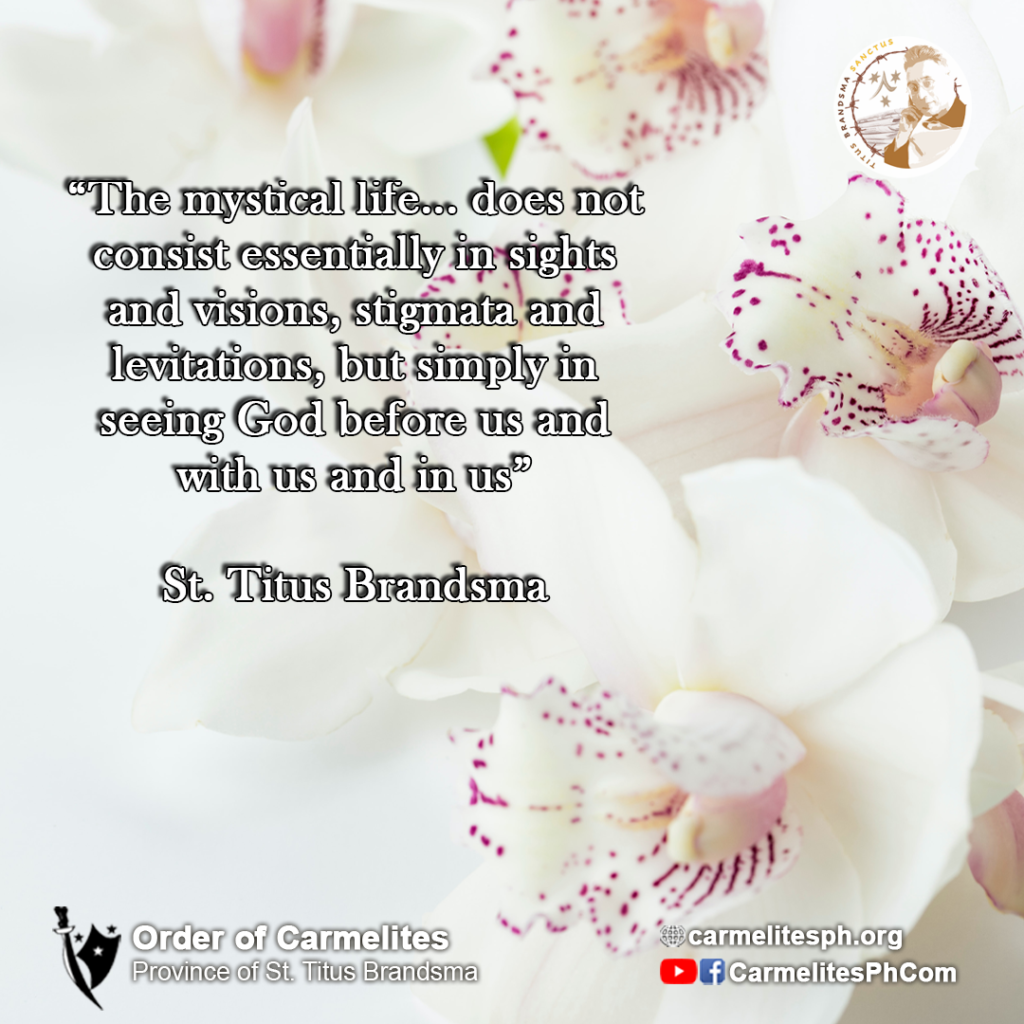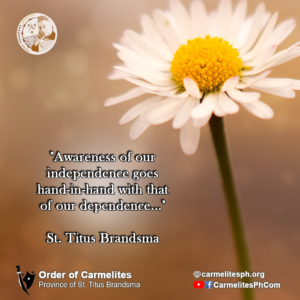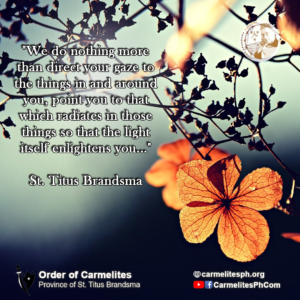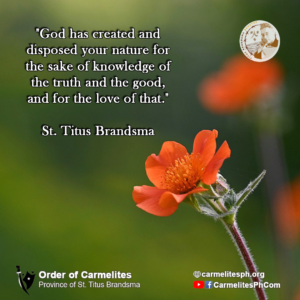
“As emphatically as possible he rejects the idea that the mystical life – which does not consist essentially in sights and visions, stigmata and levitations, but simply in seeing God before us and with us and in us, being consumed through love for Him, knowing the divine fire within us and only wishing with God that it burn and consume us – that this mystical life is not for us, for every one of us. Naturally, he leaves the disposition of this grace and its degrees to the good pleasure of God. He does not want us to look upon mystical life as something we can rouse in ourselves. It is and ever remains a gift of God, but God has made our nature susceptible to it. He does not want us to disregard this susceptibility, to neglect developing it and freeing it from such hindrances as lessen its working in us. To this negatively directed preparation he adds the more positive one of the steady practice of virtue. Here it is clearly evident how nearly he is related, on the one hand to St. Teresa and on the other to Ruusbroec; evidently both have influenced him. The Devotio Moderna taken by Geert Groote in its pristine and noblest conception from Ruusbroec has in this respect been also adopted by St. Teresa. This is especially true of the idea that man should not remain inactive and leave everything to God but that a steady activity in practicing virtue and holiness is the first and indispensable preparation for the higher grades of mystical life.”
St. Titus Brandsma
What do you think of this quote? Write it on the comment section.
📸 Joanna Kosinska | Unsplash


